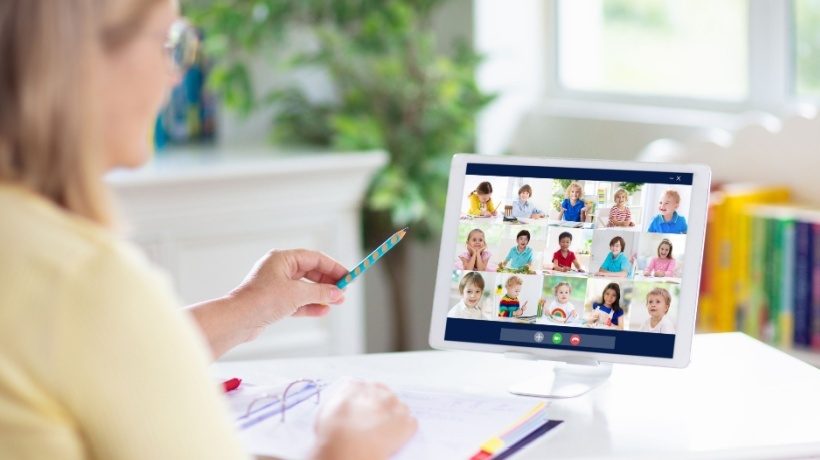Building Community Learning Into eLearning: How To Encourage Learning Online Together
A common image associated with online learning is that of a lone person sitting at a computer screen—go ahead and Google it. The learner is usually in deep thought or with a wide smile as they gaze at their screen. It’s a person and a device tethered together on a lonely or isolated educational journey.
While most Instructional Designers recognize the important benefits of creating a sense of engagement with their product, the goal is to keep learners engaged with the content on the screen. Indeed, the quality of our work is often judged by how well we meet this goal—the amount of active, engaged time a learner spends in front of the screen.
Yet a big challenge that online learners often face is that they don't have a connection with other learners. We know this connection is central to adult learning: it fosters engagement and commitment by providing participants opportunities to advance their knowledge through practice and discussion with peers.
So what if we provide our learners a path for engagement with other people beyond the content we create? What if we made eLearning the launch pad for community learning?
This idea may actually seem a bit counterintuitive at first. Sending learners away from the screen is not necessarily seen as a best practice. Especially because we can’t guarantee they’ll come back!
Still, we know that deep learning doesn’t happen in an instant and requires our learners to reflect on, apply, and wrestle with concepts in their real-world contexts with other people. This process of learning through experience or, more specifically, learning through reflection on experience, often takes place in groups to be able to better identify and solve problems or challenges.
With this in mind, here are 4 tips for using eLearning as a launch point for community learning experiences:
1. Encourage Your Learner To Become The Teacher
A proven method for retention is to have the learner craft his or her own lesson and deliver it to others in their context. Whether it’s an in-person reflection or an online training, provide instructions to your learner on how they can take what they’ve learned to their team in a constructive way that reshapes your content to apply to their unique situation.
2. Help Learners Create Or Engage A Local Learning Community To Further Explore And Apply The Content
Either in their workplace or in other settings, encourage your learner to communicate face to face with others in their location to discuss content, apply knowledge, reflect on lessons learned, or receive feedback. Often times, this community already exists (your Subject Matter Experts can help you think of options for your learner as starting points). If these communities don’t exist, help your learners create one through social media and give them examples of the next steps.
3. Ask Learners To Interview One Or More Local Content Experts
Either in their workplace, a local college, or other local or online locations, encourage your learner to interview someone who has experience with your content. For example, a learner engaged in eLearning about gardening may reach out to a gardening expert at their local nursery as a way of review and deeper discussion. They might even want to report their conversation back to the eLearning community.
4. Create An Activity That Sends Them Away From The Screen
Yes, send them away from the screen! Consider pauses in your content that offer your learner the ability to detach from the screen and try something out themselves. One of the great benefits of online learning is that it doesn’t have to be time-bound. Take advantage of that by sending your learner into the world to try out activities you craft for them. When they return, they’ll be energized to try what you have lined up next.
Education is the process of becoming something more; of taking on skills and knowledge to grow within an existing community of expertise. This should not be a lonely endeavor but one of engagement, participation, and experience with others. As more online learning efforts reflect this way of thinking, perhaps future online searches will produce images not of solitary figures, but of smiling groups of like-minded individuals learning together.






